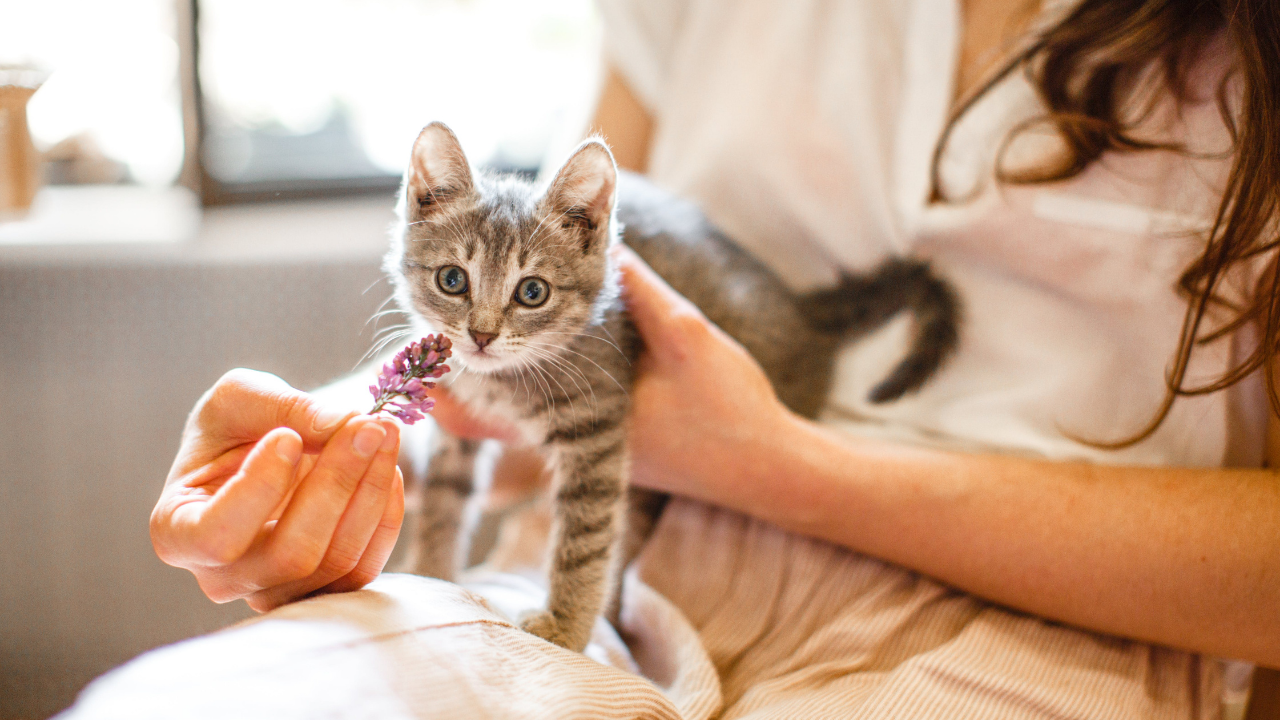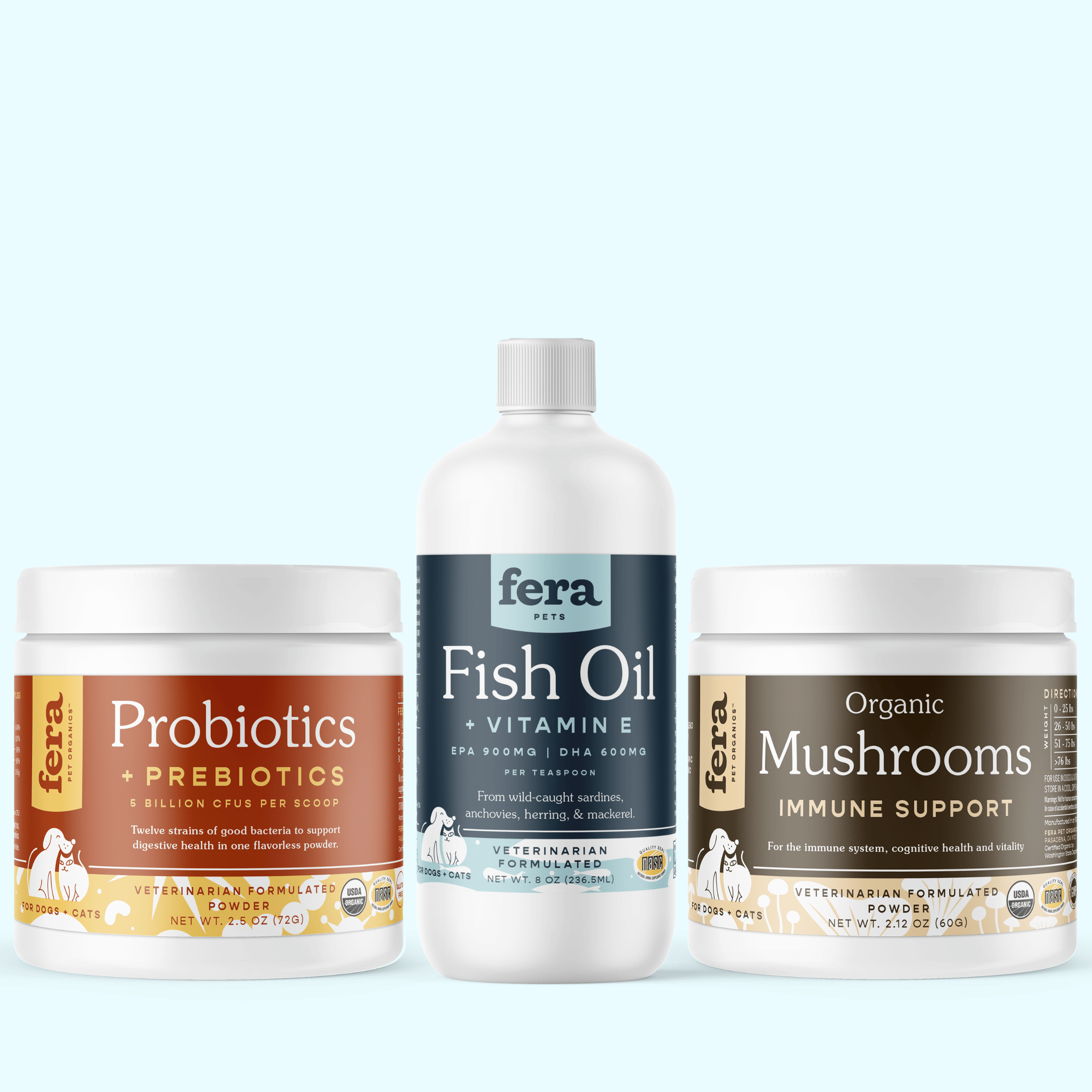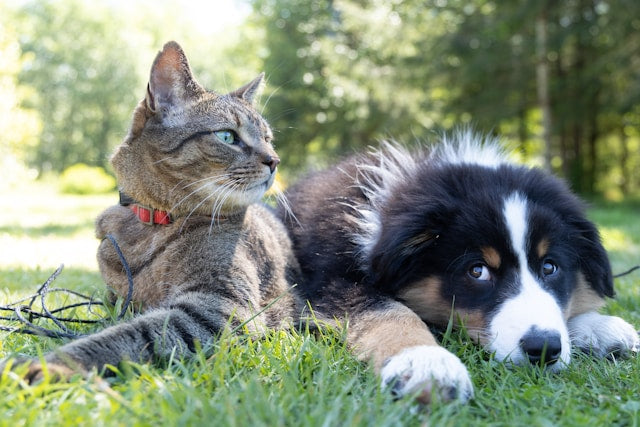New Kitten Health Checklist to Give Your Feline Friend a Great Start
Discover the ultimate new kitten health checklist! Ensure your adorable furball's happiness and well-being for years to come by following our essential tips. From vaccinations to nutrition, we've got you covered. First-time owner or seasoned cat parent, we'll help you start this journey confidently.
Congrats on your newest family member! Welcoming a bouncing kitten into your home is an exciting and wonderful experience, but it’s also a responsibility not to be taken lightly.
In addition to stocking up on fun toys and cozy cat beds, you’ll have certain to-do’s if you want to keep your tiny friend healthy and happy for years to come.
Whether you’re a first-time kitten owner or a seasoned cat parent, this new kitten health checklist will help you start this new adventure on the right paw.
8 Things to Add to Your New Kitten Health Checklist
- Set Up Your Kitten’s Health Insurance
Did you know that your pets can have health insurance, too? Just like with our own health insurance policies, pet health insurance takes on a portion of your furry friends’ medical expenses.
Nobody wants an unexpected accident or illness to befall your new kitten, but just in case, having pet insurance will give you some extra peace of mind in the financial department. Some plans will even cover routine checkups and other regularly scheduled vet visits.
Ask your veterinarian about pet health insurance plans they recommend or check out some of these popular providers:
- Healthy Paws Pet Insurance & Foundation
- Embrace Pet Insurance
- Trupanion
- ASPCA Pet Insurance
- Nationwide Pet Insurance
- Kitten’s First Vet Visit
Scheduling an appointment with your veterinarian will be one of the most essential items to check off the new kitten health checklist.
During your kitten’s first vet visit, there will be a physical health exam, a fecal exam to check for parasites, and a blood screen to test for harmful viruses such as immunodeficiency (FIV) and feline leukemia (FeLV).
This will be a great time to ask any questions you might have about your new kitten’s health, so be prepared to arrive with your list of inquiries.
- Getting Your Kitten Vaccinated
Setting up a kitten vaccine schedule will surely be a topic of discussion during your first vet appointment. There are core vaccines and non-core vaccines that will protect your fur baby from life-threatening illnesses, some of which could be transferred to people.
These will be your cat’s core vaccines:
- Rabies
- FVRCP (vaccine for feline rhinotracheitis, calicivirus, and distemper)
- Feline Leukemia
These non-core vaccines aren’t as essential as the core vaccines, but your veterinarian may recommend them depending on the kind of lifestyle your kitten will have (indoor vs. outdoor cat, etc.) and any unique health needs:
- Feline Chlamydia
- Feline AIDS
- Feline Infectious Peritonitis
- Bordetella

- Decide When to Spay/Neuter
In today’s day and age, the importance of spaying and neutering our animals has become increasingly important.
By preventing the birth of unwanted kittens, you’ll help keep your local animal shelters from overcrowding and lower euthanasia levels. It can also reduce behavioral problems associated with an animal’s mating instinct.
If you adopted your kitten from a shelter, it’s likely that they’ve already been spayed or neutered. If not, the ideal age for this surgery is approximately five months. Be sure to set up an appointment to have this done sooner rather than later.
- Start Flea, Tick, and Heartworm Preventatives
Whether you plan on having an indoor or outdoor cat, protecting your companion from fleas, ticks, and heartworms could save them from severe illness and even death.
Fleas and ticks are nasty pests that can cause your cat to develop health problems like amenia, intense itching, and Lyme disease. Not to mention they’re a major annoyance if they multiply and infest your home.
Heartworms affect both dogs and cats, but there is currently no treatment for adult heartworms in felines. This is why heartworm prevention will be essential for your new kitten health checklist.
The American Heartworm Society recommends that kittens start heartworm prevention as soon as 8 weeks of age along with flea and tick prevention. If you’re not sure which preventions are right for your kitten, your veterinarian will be able to give you recommendations.
- Plan for Dental Care
Keeping up with your cat’s dental care from the get-go not only prevents diseases like gingivitis but keeps their breath smelling fresh and clean.
Bacteria, plaque, and other debris from your cat’s food accumulate in their mouth, and over time, this layer of germs becomes tartar. If left unattended, tartar can lead to a variety of oral issues that are painful for your cat. Nobody wants that!
When you bring your kitten home, invest in teeth cleaning products like finger toothbrushes, dental chew sticks, or treats designed to fight plaque and smelly breath.

- Choose a High-Quality Diet
Kittens require a variety of proper nutrients to grow big and strong, and since their dietary needs differ from those of an adult cat, you’ll want to plan accordingly.
There are plenty of kitten-formulated cat food options on the market, but make sure they have an adequate amount of proteins, amino acids, and minerals for your growing feline. The AAFCO (American Association of Feed Control Officials) recommends 7.5 g/100 kcal of protein in food for kittens and pregnant cats.
Very young kittens, those under 8 weeks, should also have wet cat food as part of their everyday diet since their teeny teeth have a difficult time chomping down on dry food.
- Introduce Essential Supplements
Ensuring your kitten is getting all of its vital nutrients from food alone can be a challenge. That’s why starting pet supplements early may be a good idea!
We at Fera Pet Organics make this step extra easy with our Kitten Starter Kit. This collection includes three essential supplements that I recommend for all of my kitten patients:
- Organic Probiotics and Prebiotics for optimal digestion
- Non-GMO Fish Oil for a healthy coat, heart, and joints
- Organic Mushrooms for immune support
By starting these supplements now, you’ll be paving the way for a longer, healthier, and happier life for your kitten.
Organically Keep Your Pets Wild at Heart
Unlock your pet's health potential with expert advice from Dr Michelle Dulake! Start making informed decisions today with her cutting-edge insights, backed by years of experience and research. Don't miss out – secure a brighter, healthier future for your furry friend!
Fera signifies “wild animal,” and our goal is to keep your furry family members feeling young, wild, and free for as long as possible.
Find all-natural supplements for both cats and dogs, and don’t forget to check out our blog to learn more about your pet’s health and how you can help them feel good.





